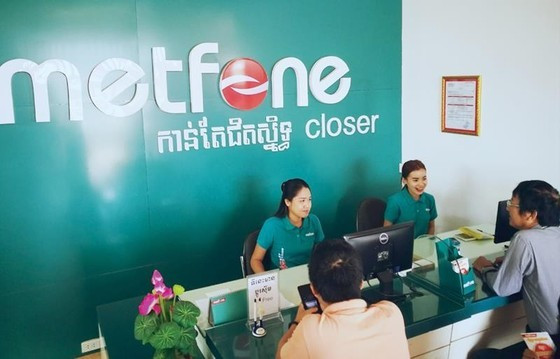
These projects have also received nearly $2.1 billion in principal and other financial resources.
According to a report submitted to the National Assembly, the Government disclosed that by the end of 2022, there were 30 State-owned enterprises, backed by State capital, engaged in direct or indirect investments through their first and second-tier subsidiaries in foreign countries. The cumulative capital invested by these entities overseas, as of the end of the previous year, reached a total of $6.62 billion.
In this group, PetroVietnam (PVN) has made investments of over $4 billion, representing almost 61 percent of the total foreign investments by State-owned enterprises. Following PVN are Viettel and the Vietnam Rubber Group (VRG), with investments of approximately $1.5 billion and over $0.77 billion, respectively. In 2022, 72 projects undertaken by 16 enterprises generated revenue exceeding $427.4 million, with over half of that amount being profit repatriated to the country.
After decades of investing abroad, these enterprises, primarily PVN and Viettel, have brought back profits exceeding US$2 billion. These projects have also received nearly $2.1 billion in principal and other financial resources. Among them, PVN remains the entity with the highest recorded revenue from foreign investment projects, exceeding $2.9 billion, followed by Viettel with over $0.95 billion.
According to the government's statement, in 2022, 94 projects recorded revenues of nearly $9.7 billion, up 24 percent compared to 2021. Out of these, 67 projects were profitable, but both the total post-tax profit and the share of profit for Vietnamese investors decreased compared to 2021 by 30 percent and 10.6 percent, respectively.
The government evaluation indicates that numerous projects have achieved substantial revenue. Among these projects, some have proven to be highly efficient, with returns surpassing their initial investments, such as PVN's oil and gas exploration project in Russia, the iron and gold mining project managed by the Economical Cooperation Joint Stock Company (Military Region 4), and Viettel's telecommunications initiative in Cambodia and Laos.
However, the achieved profits have still decreased due to inefficient cost management. This has resulted in a nearly 10 percent decrease in the shared profits for Vietnamese investors in the current year compared to 2021.
Moreover, cumulative losses in some projects continue to rise, with a few projects facing difficulties, inherent risks, and a lack of capital recovery. Some sectors and investment projects are not effective, must be stopped, and are at risk of losing capital, such as the oil and gas exploration project of PetroVietnam Exploration Production Corporation (PVEP), Vinachem's Kali salt mining project in Laos, and Viettel's telecommunications project in Cameroon, which faces exchange rate risks and significant cumulative losses.
As of the end of 2022, the entire nation boasted 827 State-owned enterprises, of which 676 had State capital ownership exceeding 50 percent. Each State-owned enterprise had an average asset scale of VND4.7 trillion, and pre-tax profits increased by 23 percent. This has offered a driving force and made a substantial contribution to State budget revenue, employment, and the income of the workforce.
